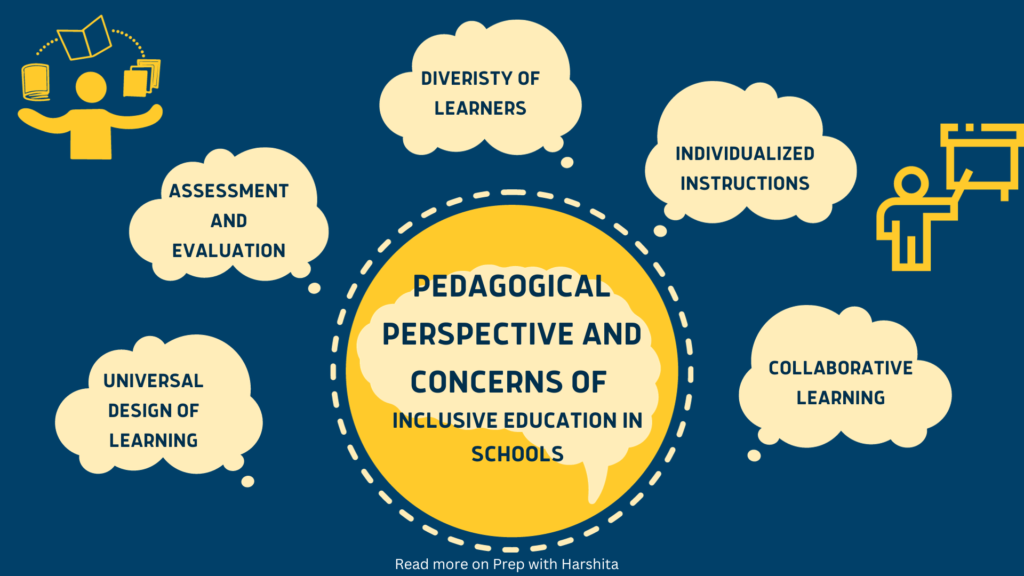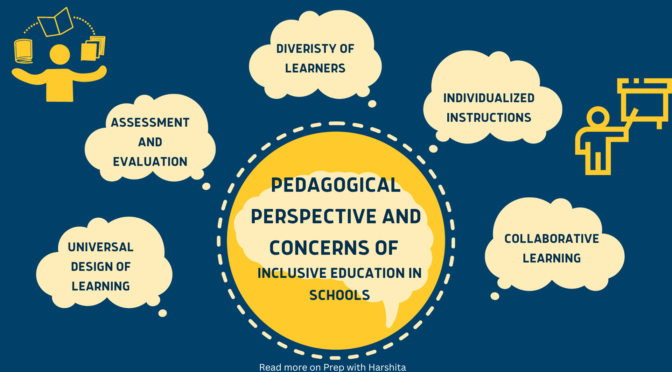Inclusive education is an approach to teaching and learning that acknowledges and accommodates the diverse needs of all students, regardless of their abilities, disabilities, or other characteristics. From a pedagogical perspective, inclusive education seeks to create environments where every student feels valued, supported, and engaged in the learning process.
Here are some main pedagogical perspectives and concerns of inclusive education in schools:
Diversity of Learners:
- Perspective: Inclusive education recognizes and celebrates the diversity of learners. It acknowledges that students have different learning styles, strengths, and challenges.
- Concern: Teachers may face challenges in adapting their teaching methods to accommodate diverse learning needs within a single classroom.
Individualized Instruction:
- Perspective: Inclusive education promotes individualized instruction to meet the unique needs of each student. This may involve differentiated instruction, personalized learning plans, and varied assessment methods.
- Concern: Teachers may need additional resources, training, and support to effectively implement individualized instruction for diverse learners.
Universal Design for Learning (UDL):
- Perspective: UDL is a key pedagogical approach in inclusive education, aiming to design learning experiences that are accessible to all students. It involves providing multiple means of representation, engagement, and expression.
- Concern: Implementing UDL requires educators to have a deep understanding of diverse learning needs and to design inclusive curricular materials and activities.
Collaborative Learning:
- Perspective: Inclusive education encourages collaborative learning environments where students of varying abilities work together. Peer support and cooperative learning are emphasized.
- Concern: Creating an inclusive and supportive peer culture requires intentional efforts to foster understanding, empathy, and positive relationships among students.
Assessment and Evaluation:
- Perspective: Inclusive education emphasizes fair and flexible assessment practices that accommodate different learning styles and abilities. Assessment should focus on growth and progress.
- Concern: Developing and implementing inclusive assessment practices requires careful steps to ensure that they accurately reflect students’ understanding and achievements.
Also Read: Pedagogical and Curriculum Structure

Also Visit: Prep with Harshita


Thank you for your sharing. I am worried that I lack creative ideas. It is your article that makes me full of hope. Thank you. But, I have a question, can you help me?